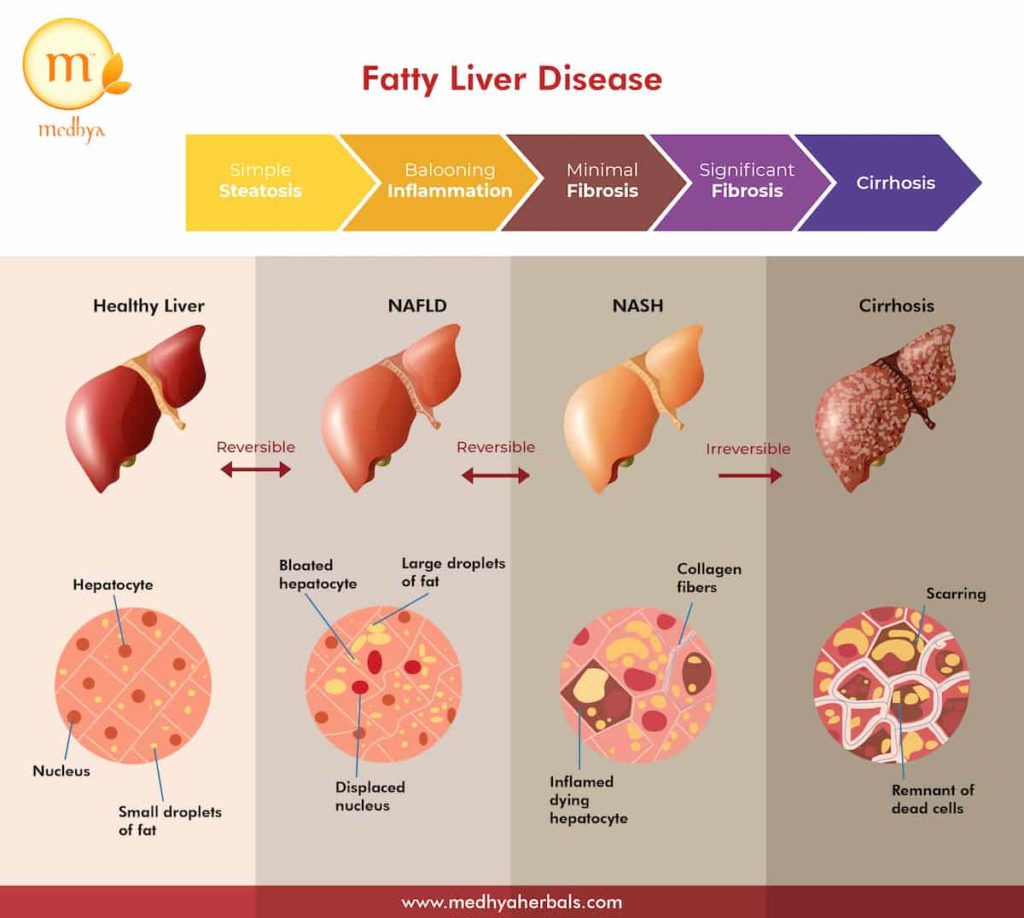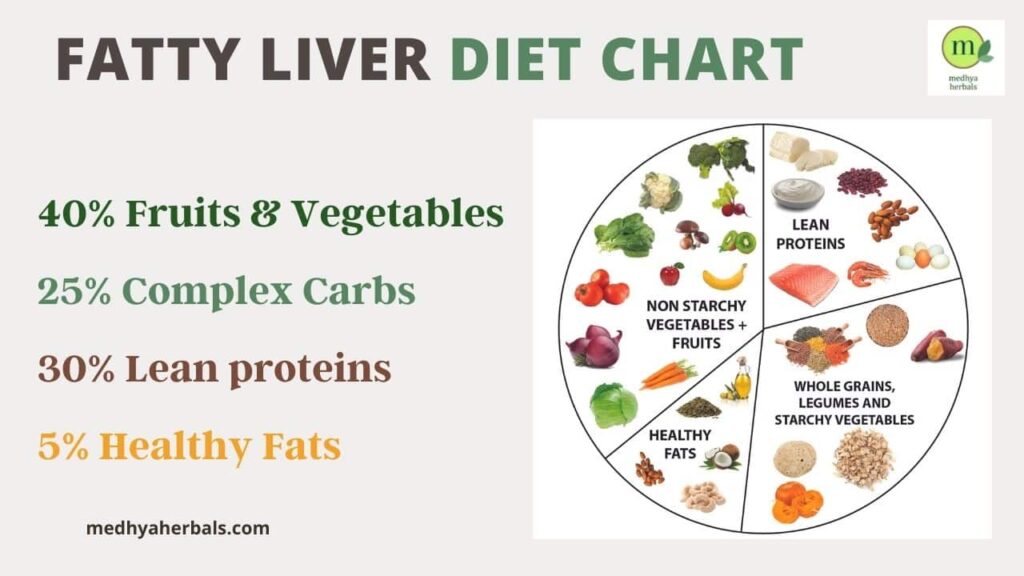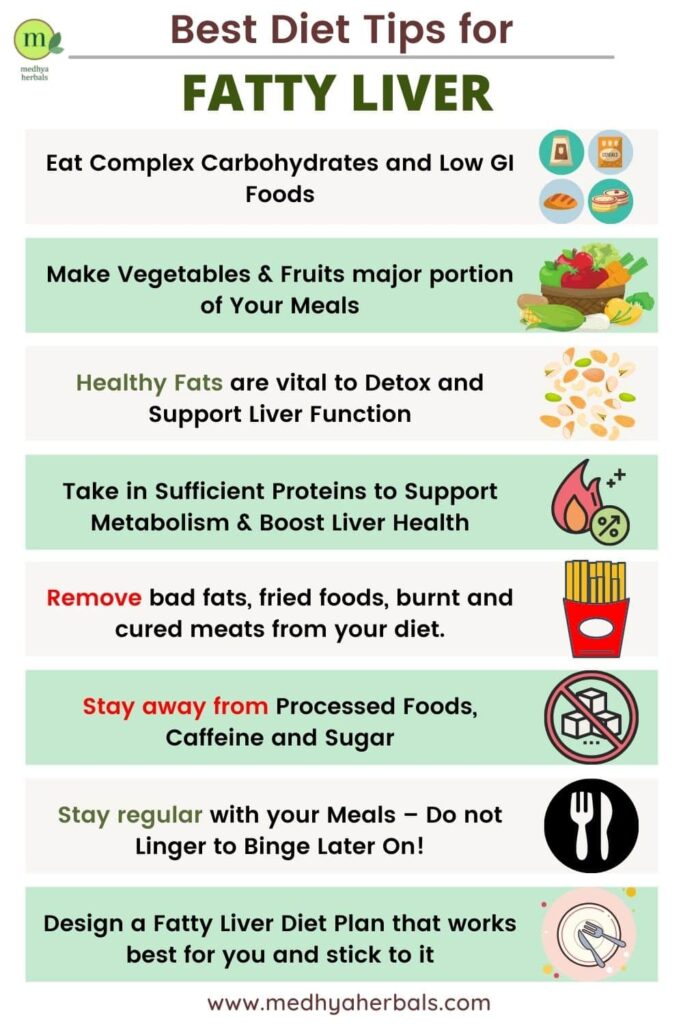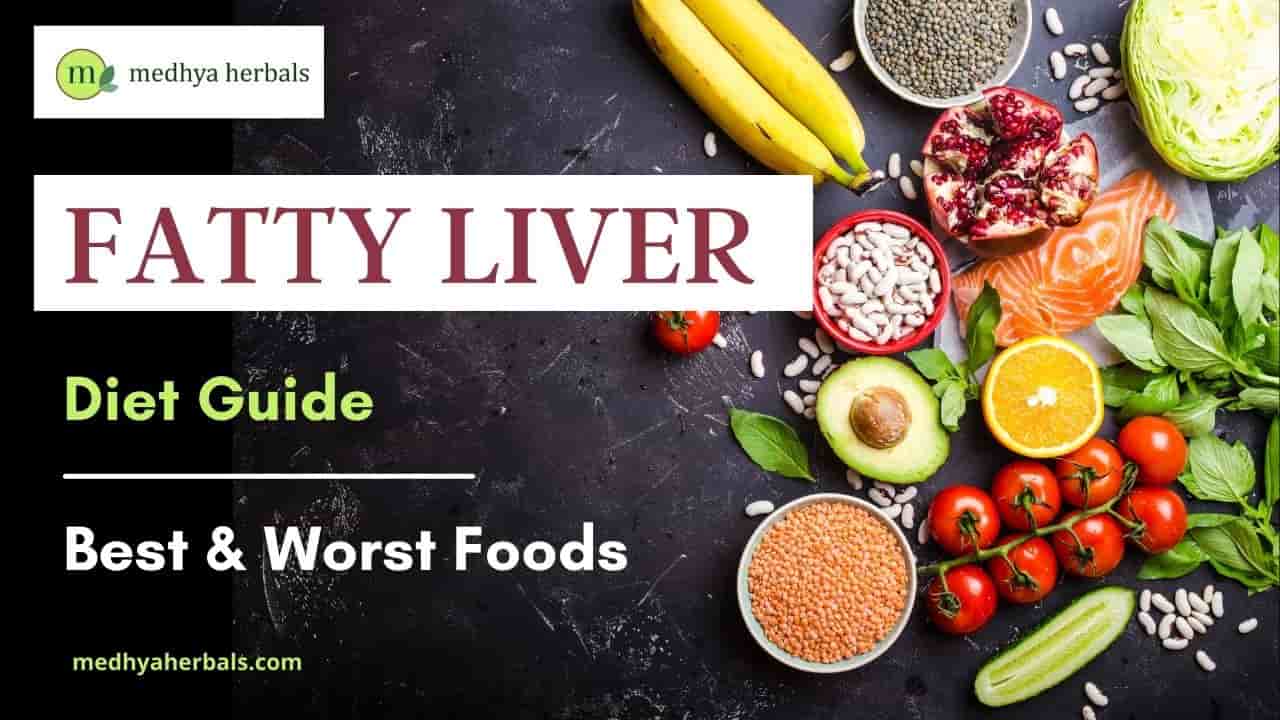Fatty liver disease, an increasingly common ailment among women worldwide, is a condition you cannot afford to ignore. When left unmanaged, it can progress into serious health issues like cirrhosis and liver cancer. Yet, despite its gravity, fatty liver disease can often go unnoticed due to its initially silent nature. As your liver accumulates excess fat, you might only begin to experience symptoms such as fatigue, abdominal discomfort, and unexplained weight loss when the condition has significantly advanced.
As an Ayurvedic doctor with over 40 years experience in holistic healing, I've dived deep into the complex world of liver health and discovered there is much we can do to reverse fatty liver disease. With the right dietary changes, we can pave the way towards revitalizing our liver health. This is why we've created this comprehensive guide on a fatty liver diet plan, crafted to help you understand and manage your liver health better.
In this article, you will uncover the essential liver healthy foods that will become your allies in this battle against fatty liver disease. We promise that you'll not only learn how to plan your meals but also gain in-depth insights into how each component of your diet plays a crucial role in your overall health. Below you can also download 7 days Fatty Liver diet plan in pdf version to make healthy diet a pillar of success for your Fatty Liver disease Treatment! This is your ultimate guide to reverse Fatty liver with your diet.

Understanding Fatty Liver Disease
Fatty liver disease, or hepatic steatosis, is a condition characterized by an excessive accumulation of fats in liver cells. It’s typically divided into two categories: alcoholic fatty liver disease (AFLD) caused by heavy alcohol consumption, and non-alcoholic fatty liver disease (NAFLD), which is not related to alcohol use.
What Causes Fatty Liver Disease?
NAFLD, the most common type, is often associated with obesity, type 2 diabetes, high cholesterol, and high blood pressure. It’s a part of metabolic syndrome, a group of conditions occurring together that increase the risk of heart disease, stroke, and type 2 diabetes.
AFLD, on the other hand, is directly related to excessive alcohol intake, which can cause significant damage to the liver, leading to fat accumulation.
Common Symptoms of Fatty Liver Disease
In the initial stages, fatty liver disease may present no symptoms. However, as the disease progresses, symptoms can include fatigue, abdominal discomfort or pain, loss of appetite, unexplained weight loss, and yellowing of the skin and eyes (jaundice). It’s essential to consult with a healthcare provider if you experience these symptoms to get an accurate diagnosis.
The Importance of Managing Fatty Liver Disease
Managing fatty liver disease is vital because, if left unchecked, it can progress into more serious liver conditions such as non-alcoholic steatohepatitis (NASH), cirrhosis, or even liver cancer. Moreover, fatty liver disease is also associated with an increased risk of cardiovascular diseases.
By understanding what fatty liver disease is, its common causes and symptoms, and the importance of managing it, we can take proactive steps towards a healthier liver. A key component of this process is a well-balanced fatty liver diet plan, which we will explore in the following sections.
The Role of Diet for Treatment of Fatty Liver Disease
Almost everything you eat gets to your liver first. The liver is termed the ‘chemical factory of the body’ for a reason. It is responsible for processing everything you take into your body.
That’s why a healthy diet plays an important role in controlling the health of your liver. Ayurveda recommends that fatty liver diet should consist of bitter and astringent tasting foods that are also cooling in nature.
When you include liver healthy foods, remove bad calories and get rid of poor fats from your meals, your liver will not store fat. Therefore, it is advisable to keep a meal diet chart to get a sense of what you are currently consuming.
Eventually, it becomes a higher level of awareness about your diet and nutrition. Do keep in mind, eating consciously does not mean that you should go on dieting. It simply means that you should eat mindfully with smaller proportions and avoid poor food choices.
The Best Foods for Fatty Liver Diet Plan
Making wise food choices can play a significant role in treating fatty liver disease. Let’s explore some liver-healthy foods and how they benefit your liver.
1. Onions, Garlic and Leeks
Sulphur vegetables include garlic, leeks, onions, scallions, and shallots are some of the best liver healthy foods for regular intake.
They activate liver enzymes that help to flush the toxins out and also boost the natural cleansing action of the liver.
2. Omega 3 Fatty Acid (Limited)
Remove bad fats from your diet and replace them with healthy fats given below. Poor fats as refined oils, burnt and old fats are dangerous to your liver. You should avoid them completely.
In general you should reduce the quantity of fats in your diet. However, you need healthy fats in limited quantity. Healthy fat can bind up with the fat soluble toxins and help to safely flush them out of our body. Thus it supports natural functioning of the liver.
- Nuts and Seeds as given below
- Avocado
- Ghee
- Sardines
- Fish oil
3. Vitamin E
Vitamin E is a vital antioxidant that supports the natural detoxification pathways of the liver. It improves fat metabolism and clears up clogged liver channels. Get vitamin E from:
- Carrots
- Chard
- Mustard
- Broccoli
- Red peppers
- Pumpkin
- Papaya
- Soybean
- Flax seed oil
- Taro root, etc.
4. Herbs and Spices
Herbs and spices carry vital micro nutrients and antioxidants that support liver’s natural detoxification pathways. When you make them regular part of your diet, you will be sure to support the health of liver, help to cleanse it and remove deposited fats and reduce inflammation throughout the body.
Ayurveda suggests bitter tasting herbs and green leafy vegetables to reverse fatty liver and treat liver related health disorders.
Regular consumption of herbs and spices also helps to prevent further damage to liver cells. Hence, these herbs prevent both cirrhosis, which primarily results from presence of dead liver cells all around.
- Coriander
- Lemongrass
- Rosemary
- Mint
- Basil
- Tulsi
- Dill
- Cumin
- Fennel
- Mustard
- Watercress
- Dandelion
5. Complex Carbs, Whole Grains and Tubers
These foods are cooling in nature and consist of vital antioxidants, minerals and vitamins that help to cleanse your body, reduce the load on your liver and help you to get rid of poor fat deposits.
In addition fibre and proteins in these foods support your liver’s natural functions. They also help to build healthy liver tissues. In Ayurveda, they form a major portion of pitta pacifying foods. So, you should make them a bigger portion of your diet.
- Whole grains such as Bulgur, Rye, Quinoa, Brown Rice, Whole Oats, and Millets
- Legumes such as Beans and Lentils for proteins
- Vegetables with variety of colors to give you fibre, vitamins, minerals, and antioxidants
- Fruits
- Nuts
- Seeds
6. Hydration
Proper hydration is vital to support your body’s natural functions including liver. As with other body parts, liver is majorly made up of water.
It needs ample of water to flush out the water soluble toxins through the urinary system and through the digestive tract too. Sufficient water is required to naturally expel the stool and reduce the levels of toxins in your body.
Additionally water forms the basis of liver enzymes, bile and all other products from liver that help it to function normally.
Make sure you are staying hydrated with normal water, herbal teas or with natural drinks as coconut water.
Foods to Avoid in Fatty Liver Diet Plan
While it’s essential to include liver-healthy foods in your diet, it’s equally important to be mindful of the foods that can aggravate fatty liver disease. Here are some types of food you should limit or avoid:
Processed Foods
Processed foods often contain unhealthy trans fats, high levels of sodium, and added sugars. These can all contribute to inflammation, weight gain, and an increase in fat accumulation in the liver. Some examples of processed foods include packaged snacks, fast food, and certain types of deli meats.
Sugary Beverages
Drinks such as soda, sweetened fruit juices, and other high-sugar beverages can cause a rapid increase in blood sugar levels and contribute to weight gain – both of which can exacerbate fatty liver disease. These drinks often provide large amounts of calories without the nutritional benefits, leading to increased fat deposition in the liver.
Refined Grains
Refined grains, such as white bread, pasta, and rice, have had most of their fiber and nutrients removed. They can cause a rapid spike in blood sugar levels, leading to increased insulin resistance, weight gain, and fat accumulation in the liver. It’s better to opt for whole grain alternatives that provide more fiber and keep you feeling fuller for longer.
Alcohol
For people with fatty liver disease, especially Alcoholic Fatty Liver Disease (AFLD), alcohol consumption can cause further liver damage. Even for those with Non-alcoholic Fatty Liver Disease (NAFLD), it’s generally recommended to limit or avoid alcohol to prevent worsening the condition.
Other Foods to Avoid in Fatty Liver Diet
- Low Sugar or No Sugar Substitutes: Artificial sugar can damage your liver even more than normal sugar does. It also blocks your body’s natural response pathways to sugar consumption.
- Vanaspati and Margarine: These foods contain high amounts of dangerous saturated fat. It worsens your fat profile, loads up liver and makes your health worse.
- Sweet baked goods and desserts (cakes, pastries, pies, ice cream, cake, etc.): These types of sugary carbs contain high amount of simple carbs that are also loaded up with sugar. This acts as a double edged sword on your liver health.
- Cured, Burnt, fatty and red meat as bacon and sausage: These are high in saturated fats, which have been further damaged due to multiple levels of processing. They act as toxins for your liver.
- Foods that contain excess salt aggravate the health of the liver. They lead to excess water retention, thus increasing the volume of blood, increasing blood pressure and further taxing liver function.
- Excess Chili and Spicy Foods: These aggravate liver health by pushing pitta dosha further. Excess chili also disturbs the digestive fire and metabolism.
- Reduce and remove caffeine. It leads to quick spike in your activity level, but eventually causes energy crashes. This makes you eat more sugary foods.
Diet Chart for Fatty Liver
40% of Meal Portion should be Fruits, vegetables, and fiber-rich foods.
25% of Meal Portion should be Complex Carbs as Whole grains, cereals, and starch-based food products
30% of Meal Portion should be Lean proteins such as lentils, beans, eggs and lean meats
5% of Meal Portion should be Healthy Fats

7 Days Fatty Liver Diet Plan
Implementing a well-structured diet plan is crucial for effectively reversing fatty liver disease. Here is a 7 days Fatty Liver Meal Plan to help you create a daily or weekly diet plan that supports your liver health.
Day 1
Breakfast: Beets Stir-fry + millets porridge
Lunch: 1 Bowl brown rice + Cowpeas soup + Cucumber Salad
Dinner: Thai Green Curry + 1 Bowl brown rice
Day 2
Breakfast: Apple Cinnamon Oats Porridge
Lunch: 1 Bowl brown rice + sprouted Mung Dal + green salad
Dinner: 1 Bowl millets + Mixed vegetables stir-fry
Day 3
Breakfast: Scrambled Eggs with Herb muffins
Lunch: 1 Bowl brown rice + Lentils soup + ½ bowl curd
Dinner: Vegetable Khichadi or Porridge
Day 4
Breakfast: Vegetables stir-fry + 1 Bowl millets porridge
Lunch: 1 Bowl brown rice + Basil Tofu Scramble + green salad
Dinner: 1 Bowl barley + Mixed Vegetables
Day 5
Breakfast: Apple Cinnamon Oats Porridge
Lunch: 1 Bowl brown rice + Sprouted Beans curry + cucumber salad
Dinner: 1 Bowl millets + Green beans stir-fry
Day 6
Breakfast: Mung Dal Dosa (Pancake) with Mint Chutney
Lunch: Bowl brown rice + Spinach Daal + ½ bowl curd
Dinner: 1 Bowl whole wheat porridge with fresh vegetables stir-fry
Day 7
Breakfast: Scrambled Eggs with Herb muffins
Lunch: Vegetable Quinoa + green salad (stir-fry)
Dinner: Vegetable Khichadi or Porridge
Morning/Evening Snack Options
Add on these liver healthy snacks in between your meals should you need to. It will help you to keep you your hunger levels in check while supporting liver detoxification:
- Roasted Black Gram
- Nuts and dried fruits (limited amount)
- Sprouts
- Berries
- Handful of sunflower seeds or pumpkin seeds
- Hummus and fresh vegetables as celery or carrots
- Cucumber slices
- Lemon water or coconut water
- Apple Beets and Celery Juice
Helpful Health Tips for Fatty Liver Disease
In addition to eating a balanced diet, you should adopt healthy lifestyle habits. Thus, you will cover the rest 20% to make your efforts a 100% push to reverse a fatty liver disease from the root.
1. Lose Weight
Obesity gives rise to NAFLD. If your weight is more than normal, talk with your doctor to guide you to lose some weight based on healthy eating and to stay more active.
Lose a pound or two in a week is good, as quick weight loss may make the disease worse.
2. Stop Drinking Alcohol
If you have the alcoholic fatty liver disease, you have to stop drinking. Though it is difficult to leave, avoiding alcohol will help you a lot. You can successfully reverse or reduce the problem.
In case you fail to avoid alcohol, talk to your doctor. Avoiding alcohol can also treat nonalcoholic fatty liver disease.
3. Regular Exercise
Exercise has a good impact in the case of a fatty liver disease. If you face difficulties in doing enough exercise to lose weight, you can fulfill this requirement with brisk walking and this will help you in losing some fat from the liver.
4. Self Care
Never leave different health problems untreated. Diseases such as diabetes and high cholesterol may give rise to other problems.
You have to talk with your doctor regarding the medications that you take, because these may be the reason for fatty liver disease. Go for a regular checkup to control any rising changes in your body.
5. Take care of Your Liver
If you need to take some medications for hepatitis A, hepatitis B, the flu, and pneumococcal disease to protect your liver and stay healthy, ask your doctor before taking any new medicine, vitamin, or supplement because sometimes these drugs can be harmful to your liver.

Conclusion
Navigating through the complexities of a fatty liver condition can indeed be challenging. It can be hard to find the right balance in your diet and lifestyle that brings about meaningful relief. We understand the struggles and the determination it takes to combat this condition. But remember, every small step you take towards healthier choices counts and contributes to your overall well-being.
With Ayurvedic root cause treatments, there is a promising path to achieving not just temporary relief, but a permanent solution to fatty liver disease. Ayurveda, with its holistic approach, focuses on treating the whole individual, rather than just the disease. It seeks to address the root cause of your condition, providing a balanced and sustainable healing process that goes beyond just diet and touches every aspect of your life.
So why wait? Schedule a consultation with our Medhya Herbals Ayurvedic Doctors today. Together, we will work to create a personalized treatment plan specifically designed for you. Embark on this journey towards holistic healing with us and discover how you can reclaim your health and vitality through Ayurveda.
Below you can download 7 Days Fatty Liver Meal Plan pdf version for reference. If you need further support to follow the diet plan, lose weight or considering Ayurvedic treatment to manage or treat Fatty Liver Disease Naturally, do contact us here, we will help you out.
FAQ
What vitamins help repair the liver?
The liver is an incredibly important organ that helps to detoxify the body, regulate metabolism, and store nutrients. Unfortunately, the liver can also be easily damaged by exposure to toxins, including alcohol and certain medications. When the liver is damaged, it becomes less efficient at performing its vital functions. Thankfully, there are a number of vitamins and minerals that can help to repair the liver. Vitamin C is a powerful antioxidant that helps to protect cells from damage. Vitamin E and selenium help to reduce inflammation and promote healing. And finally, choline and methionine are essential for proper liver function. By including these vitamins in your diet, you can help to keep your liver healthy and functioning properly.
Which fruit is best for liver?
The liver is one of the most important organs in the body. It detoxifies the blood, aids in digestion, and helps to regulate metabolism. Consequently, it is essential to maintain a healthy liver. One of the best ways to do this is to consume foods that are beneficial for the liver. Among the various fruits that are helpful for the liver, amla is considered to be one of the most potent. Amla is rich in antioxidants and helps to protect the liver from damage. It also aids in digestion and helps to improve metabolism. Other fruits that are helpful for the liver include grapes, oranges, and lemons. These fruits are all high in vitamin C, which helps to boost liver function. As a result, consuming these fruits regularly can help to keep the liver healthy and functioning properly.
Which vegetable is good for liver?
The liver is an essential organ that plays a vital role in detoxifying the blood, synthesizing proteins, and storing glycogen. As such, it is important to maintain the health of the liver by consuming foods that support its function. In Ayurvedic medicine, the bitter taste is thought to be particularly supportive of the liver. As a result, vegetables such as kale, dandelion greens, and arugula are often recommended for people seeking to improve liver health. These vegetables can help to cleanse the liver and promote proper function. In addition to their bitter taste, these vegetables are also rich in nutrients that support liver health, such as sulfur and chlorophyll. As a result, they can be an excellent addition to the diet for people seeking to improve their liver function.
How quickly can you heal a fatty liver?
The timeline to heal a fatty liver can range from a few weeks to several years, depending on factors like the severity of the condition, lifestyle changes implemented, and the individual's overall health. Making significant changes such as adopting a healthier diet, engaging in regular physical activity, reducing alcohol intake, and maintaining a healthy weight are crucial. Remember, consistency in these lifestyle changes is key to reversing fatty liver disease. It's always recommended to work with a healthcare provider to manage this condition effectively.
Can I eat egg if I have fatty liver?
Yes, individuals with fatty liver disease can generally consume eggs. Eggs are high in protein and contain essential nutrients, which are beneficial for overall health. However, they should be included as part of a balanced diet, considering their cholesterol content. As always, it's important to consult your healthcare provider or a dietitian for personalized advice considering your overall health condition and dietary needs.
What is best food for fatty liver?
A healthy diet for managing fatty liver disease should include plenty of fruits and vegetables, lean proteins such as fish and poultry, whole grains, and healthy fats like those found in avocados, nuts, seeds, and healthy oils. It's important to limit processed foods, refined carbohydrates, saturated and trans fats, and to avoid alcohol. Also, drinking plenty of water is crucial. This approach, known as a Ayurvedic diet, has been associated with improvements in liver health. However, individual dietary needs can vary, so it's best to consult a healthcare provider or dietitian for personalized advice.
What is the best drink for fatty liver?
Water is the best drink for a fatty liver and overall health. Staying well-hydrated aids digestion and keeps your liver functioning optimally. Other beneficial drinks include green tea, which has been linked to improved liver health due to its antioxidant properties, and coffee, which studies suggest may slow the progression of liver disease in some people. However, all beverages should be consumed in moderation and as part of a balanced diet. Remember, it's crucial to avoid alcohol if you have fatty liver disease, as it can cause further damage to your liver. As always, individual health circumstances vary, so it's recommended to consult with a healthcare provider or dietitian for personalized advice.
What are the 5 liver super foods?
Several "superfoods" can contribute significantly to maintaining liver health. Leafy green vegetables such as spinach, kale, and collard greens top the list due to their high fiber content and plentiful antioxidants, which help protect the liver from damage. Garlic is another superfood that benefits the liver, activating enzymes that assist in flushing toxins out of the body. Berries, especially blueberries and cranberries, are high in antioxidants that support liver health. Fatty fish like salmon and mackerel, rich in omega-3 fatty acids, help reduce inflammation and prevent fat buildup in the liver. Lastly, nuts, particularly walnuts, offer a good source of healthy fats and antioxidants, beneficial for the liver. Incorporating these foods into your diet can significantly bolster liver health.
Reference
- “Dietary walnut oil modulates liver steatosis in the obese Zucker rat.” US National Library of Medicine
- “Antioxidant and Hepatoprotective Properties of Tofu (Curdle Soymilk) against Acetaminophen-Induced Liver Damage in Rats.”US National Library of Medicine
- “Health Benefits of Fruits and Vegetables.”US National Library of Medicine
- “Therapeutic benefits of green tea extract on various parameters in non-alcoholic fatty liver disease patients.”US National Library of Medicine
- “The Effect of Green Tea Extract Supplementation on Liver Enzymes in Patients with Nonalcoholic Fatty Liver Disease.” US National Library of Medicine
- “Diet Supplementation with Allicin Protects against Alcoholic Fatty Liver Disease in Mice by Improving Anti-inflammation and Antioxidative Functions.”US National Library of Medicine
- “Effect of garlic powder consumption on body composition in patients with nonalcoholic fatty liver disease: A randomized, double-blind, placebo-controlled trial.”US National Library of Medicine
- The role of nutrition in non-alcoholic fatty liver disease: Pathophysiology and management
- Overview of Non-Alcoholic Fatty Liver Disease (NAFLD) and the Role of Sugary Food Consumption and Other Dietary Components in Its Development
- Nonalcoholic fatty liver disease: a systematic review
- Vegetarian diet, food substitution, and nonalcoholic fatty liver


Hello Dr. – Thanks for the detaild explanation. I have a basic doubt about basic body/muscle building and bringing the body into shape. I have a fatty liver and vegetarian+egg consumer. My trainer has suggested me to eat lot of eggs a day (5 white +2 whole+7 Bhurji) along with a couple of protein and EAA scoops and Paneer etc. I'm not sure if I can eat so many eggs everyday if I have fatty liver. Please give me suggestion on below email address. My WhatsApp number is +91 9611377338.
Hi! Fatty liver condition results in under functioning liver, so indeed your liver currently is not in a state to digest such a heavy dose of proteins. We do not recommend it even during normal health state unless you are an athlete, who works out excessively. Poor fat metabolism and fatty liver often lead to muscle wasting in the first place. So, do take in proteins, but in moderate amount and from natural food sources.
Thank you for detail guidance doctor